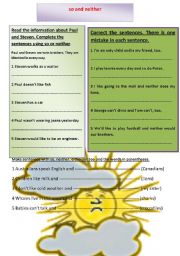
|
so, neither, either, or too
Read the information about Paul and Steven. Complete the sentences using so or neither.
Correct the sentences. There is one mistake in each sentence
Level: elementary
Age: 14-17
Type: worksheet
Downloads: 19
|
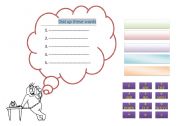
|
DIAL UP WORDS (spelling game)
Any word (nouns-adjective-adverb -verbs) you can dial any word to remember its spilling and to practice logical intelligent
Level: elementary
Age: 3-17
Type: worksheet
Downloads: 1
|
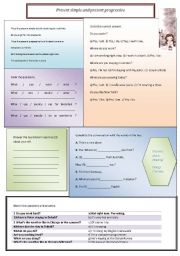
|
Present simple and present progressive
� Use the present simple to talk about regular activities.
He plays golf on the weekends.
� Use the present progressive to talk about current or
temporary activities.
He�s talking to someone on the phone right now.
I�m staying with a friend for a week.
Level: intermediate
Age: 10-17
Type: worksheet
Downloads: 5
|
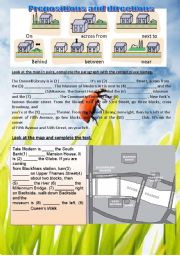
|
preposition of place
Look at the map In pairs, complete the paragraph with the correct place names
Look at the map and complete the text..
Level: intermediate
Age: 14-17
Type: worksheet
Downloads: 78
|
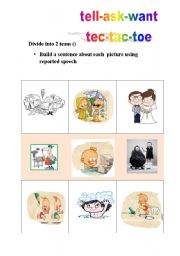
|
tell-ask-want(reported speech)
Divide into 2 team ()
� Build a sentence about each picture using reported speech
Level: elementary
Age: 10-17
Type: worksheet
Downloads: 2
|
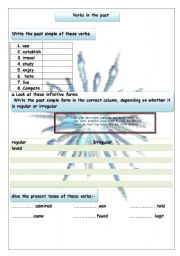
|
Verbs in the past
Write the past simple of these verbs
a Look at these infinitive forms
Write the past simple form in the correct column, depending on whether it is regular or irregular
Give the present tense of these verbs:-
Level: elementary
Age: 10-17
Type: worksheet
Downloads: 1
|
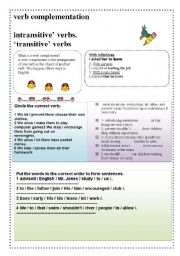
|
verb complementation in transitive� verbs. �transitive� verbs
What is a verb complement?
A verb complement is the arrangement of one verb as the object of another verb. This happens three ways in English
Level: intermediate
Age: 14-17
Type: worksheet
Downloads: 5
|
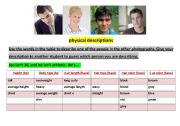
|
Physical descriptions
1-Use the words in the table to describe one of the people in the other photographs. Give your description to another student to guess which person you are describing.
2-Write a description of yourself and another person in the classroom � another student or your teacher
Level: elementary
Age: 10-17
Type: worksheet
Downloads: 15
|
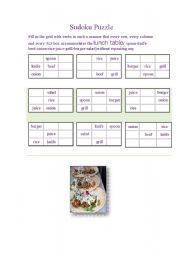
|
Game Sudoku Puzzle(lunch table )
Fill in the grid with verbs in such a manner that every row, every column and every 3x3 box accommodates the lunch table( spoon-knife-beef-onion-rice-juice-grill-burger-salad)without repeating any.
Level: elementary
Age: 10-17
Type: worksheet
Downloads: 3
|
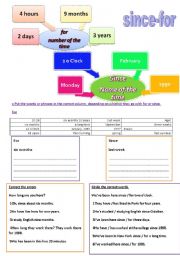
|
since-for
a Put the words or phrases in the correct column, depending on whether they go with for or since
Level: intermediate
Age: 13-17
Type: worksheet
Downloads: 12
|